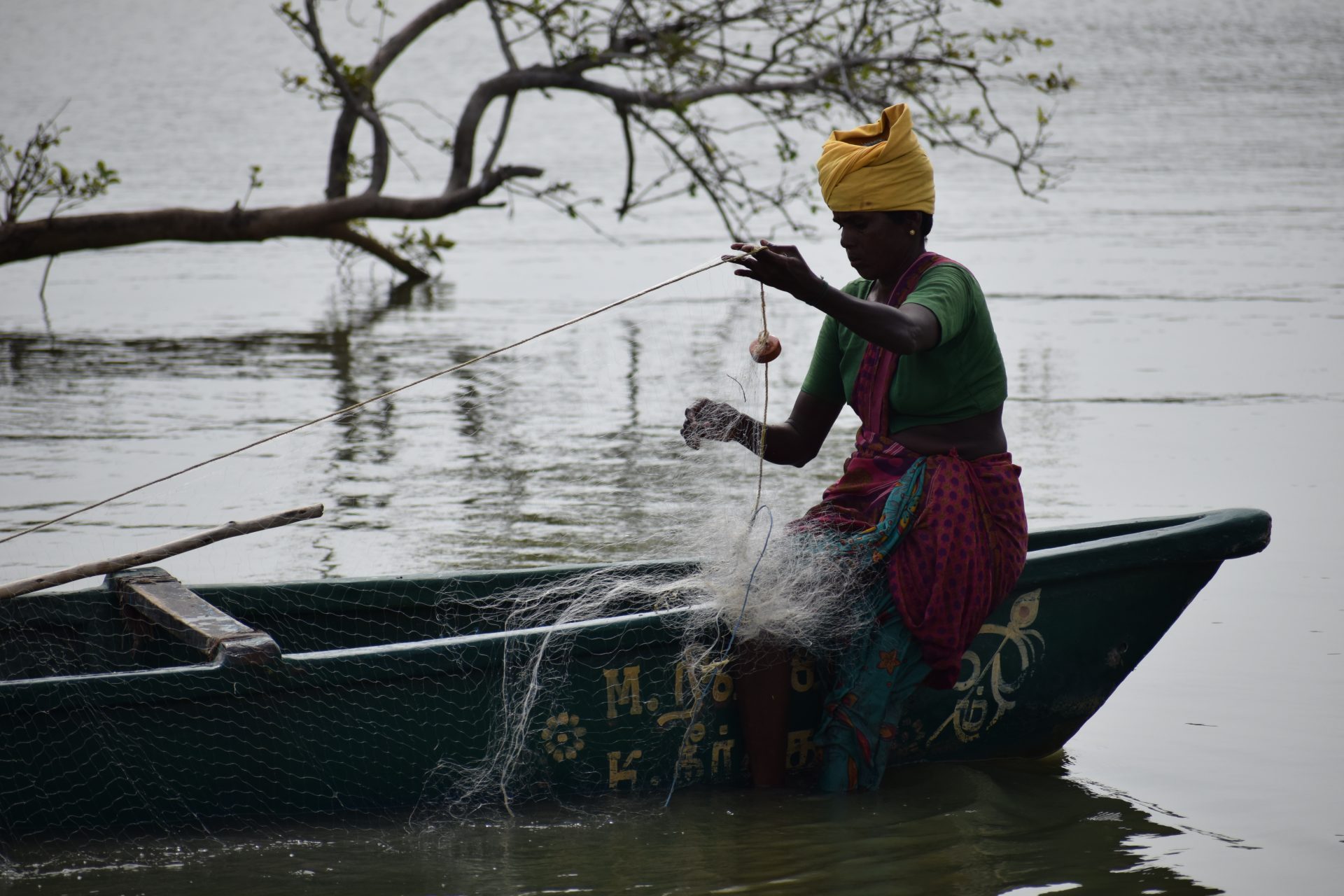Irulars, a tribal community settled in coastal Tamil Nadu for three generations, with ancestral ties to the neighbouring province of Andhra, are involved in brackish water fishing. Long unnoticed and marginal, their livelihood has been dependent on resources offered by the backwaters, with its mix of salty and fresh water, ideal for crustaceans, molluscs and varieties of fish.
Segregated physically in rudimentary and transient settlements from the rest of the population, they live on the coast, moving with the backwaters in groups, subsisting on the day’s minimal catch. Both men and women work together in fishing, but men also tend to go out in search of other occupations. Backwaters become the working terrain for the Irular women who toil hard in them from wee hours in the morning until late in the afternoon, after which they try to sell their day’s catch to haggling consumers. Kneeling waist down in the waters, their bare hands search for shrimp and crabs, among others. Their work tools consist of the clothes they wear to store their catch or a humble basket made of dried palm leaves, called pari.
Such work fails to secure them a sufficient livelihood, let alone sufficient food for the household. However, for the Irular woman, it is necessary to feed the household that takes her to the waters every day. In Cuddalore, with growing industrial activities on the coast, the quality of backwaters – which feed the labour and life of Irular women – is declining. As shrimp are depleted in the backwaters, aquaculture shrimp farming takes over, leaving no place for Irulars.
Ethnographic documentation and interview, Arunkumar S.,
